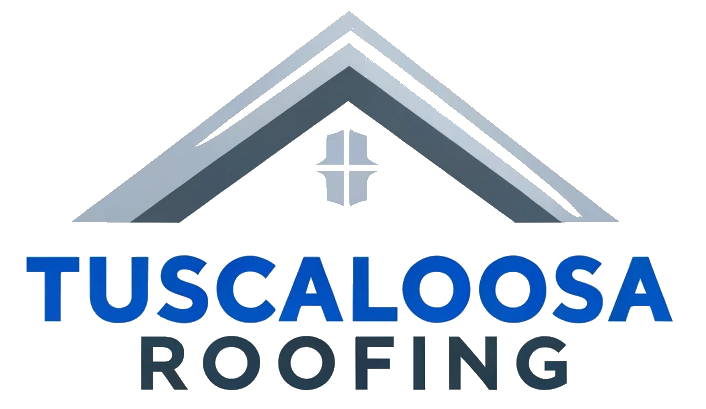Asphalt shingles are a popular choice for both residential and commercial roofing projects. They are known for their durability, affordability, and ease of installation. These shingles come in various styles and colors, making them a versatile option for different architectural designs. Whether you are considering a new roof installation or a roof replacement, understanding the benefits and features of asphalt shingles can help you make an informed decision.
Roofing contractors often recommend asphalt shingles due to their cost-effectiveness and long-lasting performance. They are designed to withstand various weather conditions, providing reliable protection for your home or business. Additionally, asphalt shingles require minimal maintenance, making them a convenient choice for busy homeowners. In this post, we will explore the different types of asphalt shingles, the installation process, costs, maintenance tips, and how they compare to other roofing materials.
What Are Asphalt Shingles?
Asphalt shingles are a type of roof shingles made from a combination of asphalt and other materials. They are designed to provide a durable and weather-resistant roofing solution. These shingles are typically composed of a fiberglass or organic mat, coated with asphalt and topped with mineral granules. The granules help protect the shingles from UV rays and add color and texture.
Asphalt shingles are widely used in residential roofing due to their affordability and ease of installation. They are available in various styles, including three-tab, architectural, and premium shingles. Each style offers different levels of durability and aesthetic appeal. Roofing contractors often recommend asphalt shingles for their versatility and cost-effectiveness.
| Feature | Three-Tab Shingles | Architectural Shingles | Premium Shingles |
|---|---|---|---|
| Durability | Moderate | High | Very High |
| Cost | Low | Moderate | High |
| Aesthetic Appeal | Basic | Enhanced | Luxury |
Types of Roofing Shingles
There are several types of roofing shingles available, each with its own advantages. The most common types include asphalt shingles, metal roofing, and slate roofing. Asphalt shingles are the most popular due to their affordability and ease of installation. They come in three main styles: three-tab, architectural, and premium shingles.
Metal roofing is another option, known for its durability and longevity. It is more expensive than asphalt shingles but offers superior protection against extreme weather conditions. Slate roofing is a premium choice, offering unmatched beauty and durability. However, it is the most expensive option and requires professional installation by a skilled roofing contractor.
Installation Process for Asphalt Shingles
The installation process for asphalt shingles involves several steps. First, the old roofing materials must be removed, and the roof deck inspected for any damage. Any necessary roof repairs should be completed before proceeding with the installation. Next, a layer of roofing felt or underlayment is applied to the roof deck to provide an additional barrier against moisture.
Once the underlayment is in place, the asphalt shingles are installed starting from the bottom edge of the roof and working upwards. Each row of shingles overlaps the one below it, creating a watertight seal. Roofing nails are used to secure the shingles in place. Proper roof ventilation is essential to prevent moisture buildup and extend the life of the shingles.
Cost of Asphalt Shingles
The cost of asphalt shingles varies depending on the type and quality of the shingles. Three-tab shingles are the most affordable option, while architectural and premium shingles are more expensive. The overall cost of a roofing project also includes labor, materials, and any necessary roof repairs.
On average, the cost of asphalt shingles ranges from $100 to $400 per square (100 square feet). Additional costs may include roof flashing, roof underlayment, and other roofing materials. It is important to obtain roofing quotes from multiple roofing companies to ensure you are getting a fair price. Roofing estimates should include a detailed breakdown of all costs involved.
Maintenance Tips for a Long-Lasting Roof
Proper roof maintenance is essential for extending the life of your asphalt shingles. Regular roof inspections can help identify potential issues before they become major problems. Look for signs of roof leaks, damaged shingles, and other issues that may require roof repair.
Keep your roof clean by removing debris, leaves, and moss. Roof moss removal can prevent moisture buildup and damage to the shingles. Ensure that your roof drainage system is functioning properly to prevent water from pooling on the roof. Regular maintenance and timely roof repairs can help you avoid costly roof replacements.
Comparing Asphalt Shingles to Other Roofing Materials
Asphalt shingles are often compared to other roofing materials such as metal roofing and slate roofing. Each material has its own advantages and disadvantages. Asphalt shingles are the most affordable option and are easy to install. They offer good durability and a wide range of styles and colors.
Metal roofing is more expensive but offers superior durability and longevity. It is resistant to extreme weather conditions and requires minimal maintenance. Slate roofing is the most expensive option but offers unmatched beauty and durability. It is a premium choice for those looking for a high-end roofing solution.
Common Issues and Repairs
Asphalt shingles can experience several common issues over time. Roof leaks are a common problem, often caused by damaged or missing shingles. Regular roof inspections can help identify and address these issues before they cause significant damage.
Other common issues include curling or buckling shingles, granule loss, and algae growth. These problems can be addressed through regular maintenance and timely roof repairs. It is important to hire a professional roofing contractor to handle any repairs to ensure they are done correctly.
Environmental Impact and Sustainability
Asphalt shingles have a moderate environmental impact compared to other roofing materials. They are made from petroleum-based products, which can contribute to environmental pollution. However, many manufacturers are now producing shingles with recycled content, reducing their environmental footprint.
Recycling old asphalt shingles is an option to consider when replacing your roof. This can help reduce the amount of waste sent to landfills. Additionally, proper roof ventilation and insulation can improve the energy efficiency of your home, reducing your overall environmental impact.
Conclusion
Asphalt shingles are a popular and versatile roofing solution for both residential and commercial properties. They offer a balance of affordability, durability, and aesthetic appeal. Understanding the different types of shingles, the installation process, and the associated costs can help you make an informed decision for your roofing project.
Regular maintenance and timely repairs are essential for extending the life of your asphalt shingles. Comparing asphalt shingles to other roofing materials can help you determine the best option for your needs. Consider the environmental impact and sustainability of your roofing choice to make a more eco-friendly decision. By working with a professional roofing contractor, you can ensure a high-quality installation and long-lasting performance for your roof.

